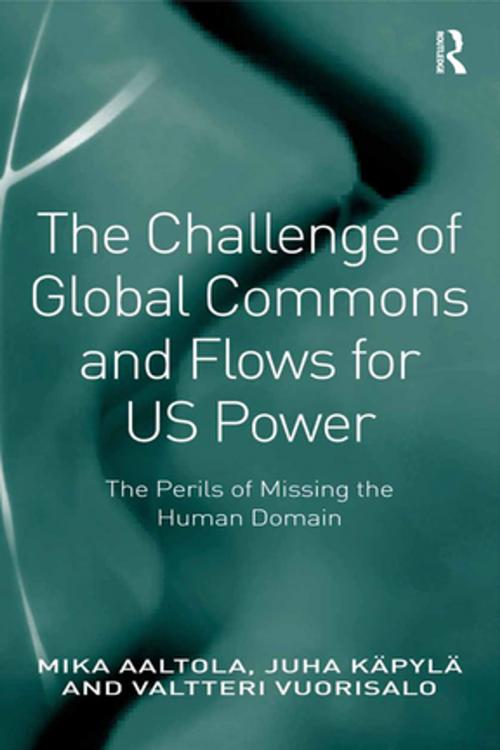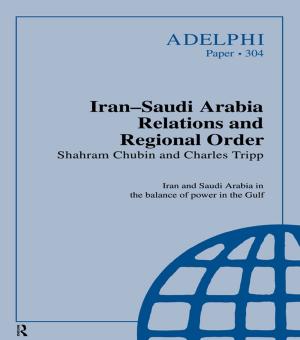The Challenge of Global Commons and Flows for US Power
The Perils of Missing the Human Domain
Nonfiction, Social & Cultural Studies, Political Science| Author: | Mika Aaltola, Juha Käpylä | ISBN: | 9781317039211 |
| Publisher: | Taylor and Francis | Publication: | April 1, 2016 |
| Imprint: | Routledge | Language: | English |
| Author: | Mika Aaltola, Juha Käpylä |
| ISBN: | 9781317039211 |
| Publisher: | Taylor and Francis |
| Publication: | April 1, 2016 |
| Imprint: | Routledge |
| Language: | English |
Global commons are domains that fall outside the direct jurisdiction of sovereign states - the high seas, air, space, and most recently man-made cyberspace - and thus should be usable by anyone. These domains, even if outside the direct responsibility and governance of sovereign entities, are of crucial interest for the contemporary world order. This book elaborates a practice-based approach to the global commons and flows to examine critically the evolving geopolitical strategy and vision of United States. The study starts with the observation that the nature of US power is evolving increasingly towards the recognition that command over the flows of global interdependence is a central dimension of national power. The study then highlights the emerging security and governance of these flows. In this context, the flows and the underlying global critical infrastructure are emerging as objects of high-level strategic importance. The book pays special attention to one of the least recognized but perhaps most fundamental challenges related to the global commons, namely the conceptual and practical challenge of inter-domain relationships-between maritime, air, space, and cyber-flows that bring about not only opportunities but also new vulnerabilities. These complexities cannot be understood through technological means alone but rather the issues need to be clarified by bringing in the human domain of security.
Global commons are domains that fall outside the direct jurisdiction of sovereign states - the high seas, air, space, and most recently man-made cyberspace - and thus should be usable by anyone. These domains, even if outside the direct responsibility and governance of sovereign entities, are of crucial interest for the contemporary world order. This book elaborates a practice-based approach to the global commons and flows to examine critically the evolving geopolitical strategy and vision of United States. The study starts with the observation that the nature of US power is evolving increasingly towards the recognition that command over the flows of global interdependence is a central dimension of national power. The study then highlights the emerging security and governance of these flows. In this context, the flows and the underlying global critical infrastructure are emerging as objects of high-level strategic importance. The book pays special attention to one of the least recognized but perhaps most fundamental challenges related to the global commons, namely the conceptual and practical challenge of inter-domain relationships-between maritime, air, space, and cyber-flows that bring about not only opportunities but also new vulnerabilities. These complexities cannot be understood through technological means alone but rather the issues need to be clarified by bringing in the human domain of security.















